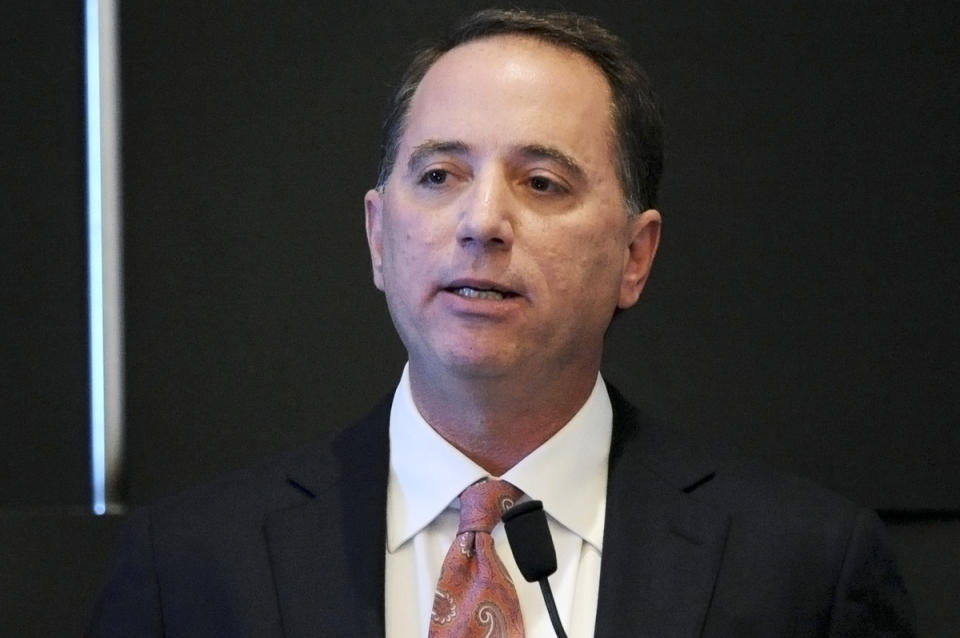Wall St. CEO: It's time for junior employees to 'disrespect' seniority

Long-time investment bank CEO Rich Handler, who runs Jefferies (JEF), wants to stomp out the notion that senior folks on Wall Street are “too busy,” “too important,” or “too anything” to help the junior folks get the job done.
In a memo, Handler made a case that it’s time to start “disrespecting” the notion of seniority.
“Often as one navigates the path to become more senior, it is all too easy to fall into the trap that asking for help is a sign of weakness. We would like to share with you in this letter one principle that we believe can help everyone at Jefferies deal with this reality: Our entire firm would be better if we collectively purged ourselves of the concept of undue and excessive respect for seniority,” Handler wrote.
Three new rules for senior management
First, he encouraged them to “eliminate all artificial barriers” that can be used to insulate oneself.
“You need to remember you were junior once, and perhaps not that long ago. You need to respond to emails and calls in real-time and be blind to the seniority or title of the person reaching out. You need to maintain a body language that never says, ‘I’m too busy and important, what do you want?”’ Handler wrote. “Approachability is as important as competence. Ego is the enemy, pride in title hierarchy is pathetic and taking satisfaction in mentoring the next generation of good leaders is the most worthy of objectives.”
Second, senior folks need to stay “engaged in the trenches” no matter how successful they’ve been in the past.
“You can’t be of help to anyone in the firm if your skills are not current, your relationships are not maintained and expanded, and you are not learning and growing outside of your historical comfort zone daily,” Handler wrote. “These may be the last things someone who has been very successful wants to hear, especially later in one’s career, but there is truly the finest of lines between being super senior and no longer relevant. Never forget this.”
And third, they need to put the interests of the firm ahead of their own.
“It may appear contrary to common sense or sound too folksy or idealistic to be true, but in our careers, we have witnessed the incontrovertible truth that if you act in the long-term interest of your business, you will undoubtedly get more responsibility, more cumulative compensation, more promotions and, most importantly, more satisfaction,” Handler wrote. “Yes, there may be short periods of time when more selfish behavior will appear the faster path to some success, but it is illusory and temporary. It is also very lonely.”
Rule for junior members
The junior members were also given some rules to live by. For starters, he emphasized that they should do everything in their power to “never waste people’s time.”
“You need to know when it is appropriate to reach out for help and when it is not. You need to fully understand what you are asking for, who the most appropriate person is to approach and when is the right time to reach out. You must learn from every experience and learn from the assistance you received, so perhaps next time it is unnecessary. Cogent, succinct, and smart requests are appreciated. Rambling musings without the relevant facts laid out will drive people nuts,” Handler wrote.
Next, they should heed the advice, but if something new is learned along the way that might change things, they should follow back up with senior management.
“There are few things more frustrating than helping or spelling out a strategy, and then finding out that it was not implemented properly,” Handler wrote. “Leaders who spend the time to help you, want to see you achieve our objectives. Follow their advice. Also, it is always appreciated if you share the feedback of what happened and the current status of the situation.”
Finally, the junior folks should help those who are even more junior.
“Nothing makes someone want to help you more than when they see you exhibiting the same behavior with people who look up to or need you. It becomes a wonderful cycle of operating leverage, connectivity, information sharing and productivity. If you don’t exhibit positive leadership behaviors to the people junior to you, why should anyone waste time advising you, introducing you or going to meetings with you?”
And regardless of where an employee is in his or her career, Handler believes everyone should “1. Pick up the phone early, 2. Send a succinct email for advice, history or perspective, 3. Ask for help if someone knows the client well, 4. Seek additional help in recruiting the people we need, [and] 5. Ask the right person to accompany you to the client meeting.”
—
Julia La Roche is a finance reporter at Yahoo Finance. Follow her on Twitter. Send tips to laroche@oath.com.
Read more:

 Yahoo Finance
Yahoo Finance 
